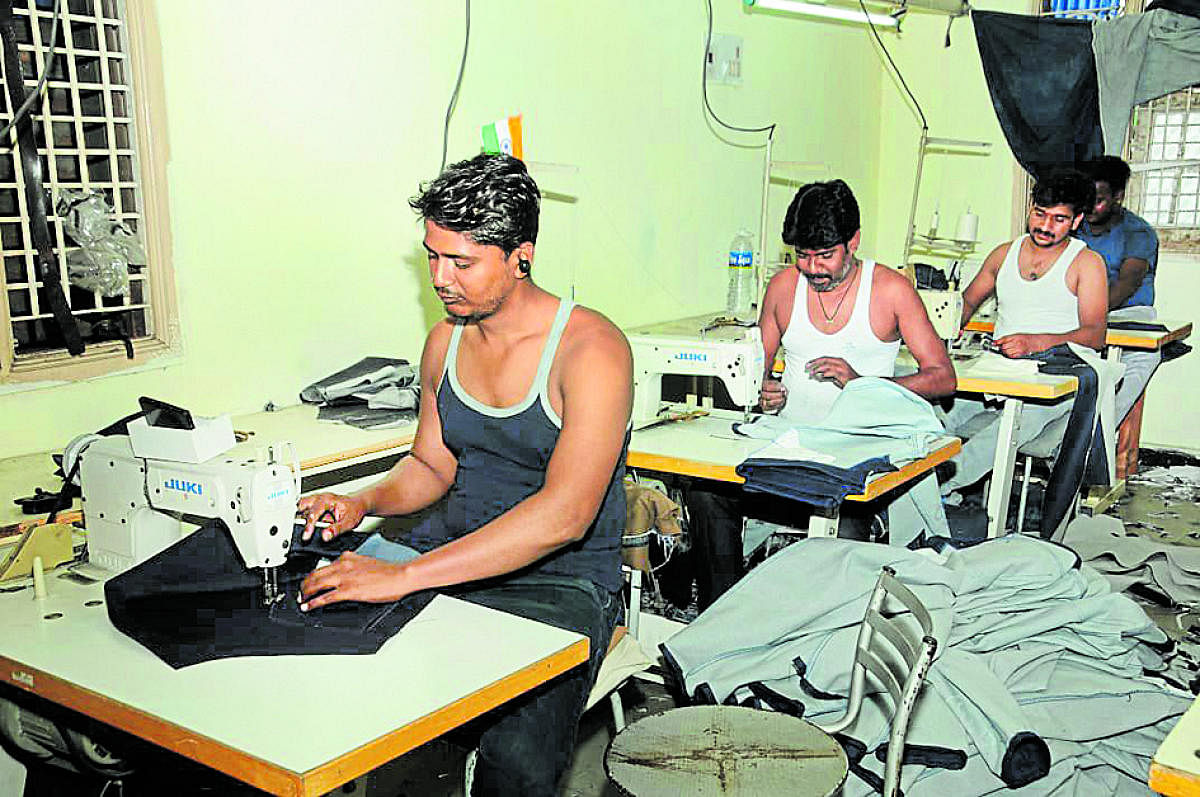

The narrow lanes of Old Ballari city bustle with activity every day. Hundreds of labourers are busy, manufacturing famed pairs of jeans.
Since the British era, the town has been known for its textile industry. Earlier, due to its proximity to both Madras and Bombay presidencies, it was used to manufacture khaki shorts, part of the uniforms for police personnel. However, after Independence, the industry at Ballari slowly adapted to manufacture denim trousers for men.
Today, the industry is facing an existential crisis of sorts, following the entry of manufacturers in other states. The town, which was the second-largest manufacturer of jeans just two decades ago, now ranks fifth or sixth in the country.
Ballari jeans, known for their economic value and ruggedness, are slowly losing their market across India. The arrival of large-scale readymade garments from Gujarat in India’s market has added to this decline.
“Ballari jeans had a 70% to 80% market base in the entire South India five to six years ago. However, it is losing out on the market in Kerala, Tamil Nadu, Andhra Pradesh, Telangana, and to a certain extent Goa, as the products manufactured in Gujarat are being supplied in bulk and extending credit lines to sellers for a longer period,” says Ballari Garment Manufacturers’ Association President S Vinayak Rao.
While individuals are putting in their efforts to sustain the business, this may fall short as “the small-scale industries cannot extend credit to retailers for a longer period,” he says.
Ahmedabad, Surat and Rajkot-based readymade garment industries, which have the backing of the Gujarat government, manufacture a range of apparel items for men, women and children. However, 80% of Ballari products are men’s wear and 15% are children's wear.
Ballari manufacturers emphasise that the problem is exacerbated by a lack of support and incentives from the government. They have been demanding better infrastructure, road, rail and air connectivity to procure raw materials and dispatch finished products. In addition, loans and subsidies on powerlooms and platforms to display their products for export would aid their business too.
In Gujarat, manufacturers use one location for cutting, stitching, ironing, pocket sticking and washing. In Ballari, each of these processes is done in different places. 600 such units that employ over 45,000 to 60,000 people.
Members of the association say there has been a demand for a ‘jeans park’ in Ballari for the last two decades. “Nearly 64 acres of land was identified near Ballari city in 2006. However, the land was diverted for setting up rice mills. Another land has been identified near Aldalli for the purpose. But Forest Department officials claimed that this land was deemed as a forest area,” said Lucky Shaw, former secretary of the association.
Lucky believes even the setting up of a jeans park will not make enough of a difference now to the industry, after it was devastated by Covid.
“We need market loans to manufacture on a large scale. Complicated paperwork with the Textile Department and red-tapism at banks have resulted in the shutting of nearly 20% of units in Ballari city,” says Eshwar Reddy, a manufacturer.
Lack of modernisation
Local officials say one of the reasons Ballari jeans are not making a brand on their own is the manufacturers' lack of willingness to modernise. “There is a need to take up large-scale manufacturing of jeans under one roof. Currently, it is spread across the city and quality is a matter of concern,” says an officer.
Vittal Raju, deputy director of the Textile Department, Ballari, says that the department is working with the district administration to find suitable land for the jeans park, which will soon be handed over to the association. “The state government is chalking out plans to make Ballari jeans a global product by introducing new technology and providing them with a market,” he says.